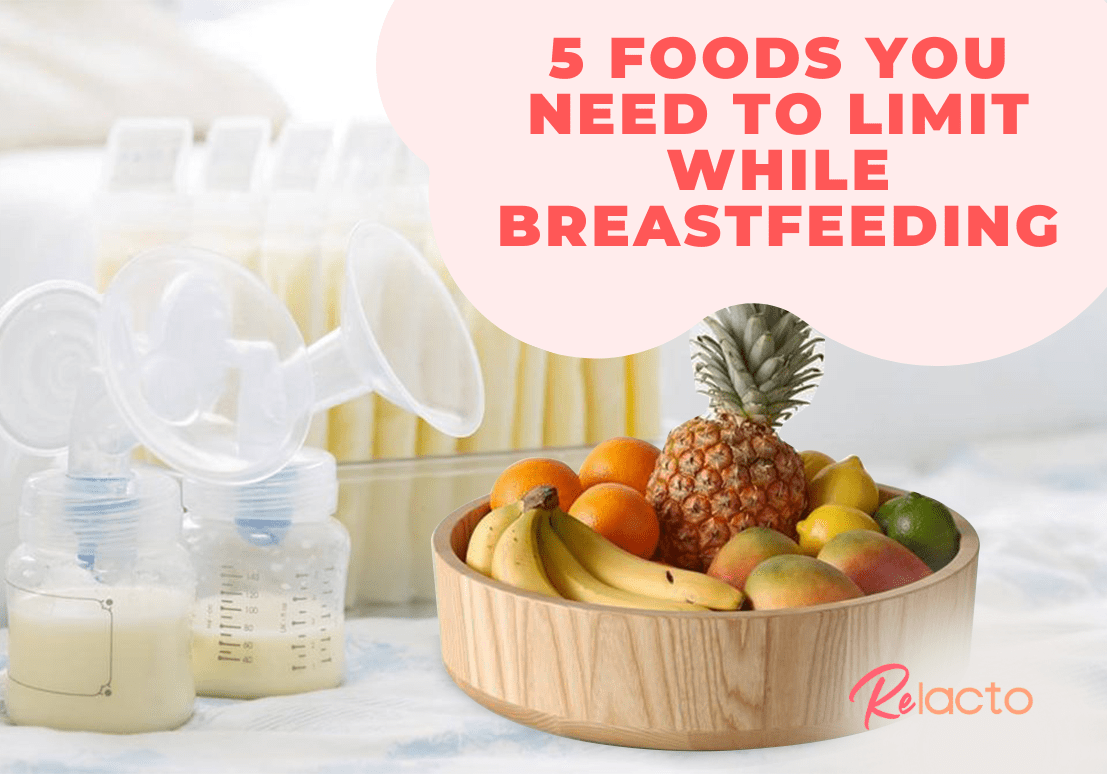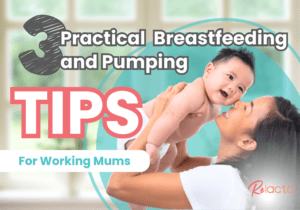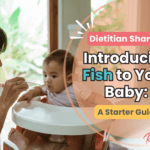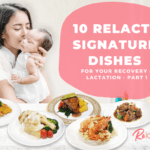5 Foods You Need To Limit While Breastfeeding

Congratulations on completing your post-pregnancy confinement and embarking on this new journey of breastfeeding! Even though you are no longer restricted to your home, you will still need to be careful about the foods you consume. In this blog post, we will share with you a list of common foods to avoid while breastfeeding
List of Common Problematic Foods
Here is a list of some common foods that one should limit or avoid while breastfeeding:
Fast food
Breastfeeding is a natural, powerful way to nurture and bond with a baby and it has been proven to be a great source of nourishment for infants. Unfortunately, a mother’s diet can have an impact on the quality of breast milk and on her overall health.
Fast food is one type of food that should be avoided or limited while breastfeeding due to its high levels of saturated fat, sugars and sodium. Not only does this kind of food lack essential vitamins, minerals and fibre that support the quality of breast milk, but it is also known among the healthcare industry that such food can bring about a greater prevalence of obesity. This means it would be more difficult for mothers to reduce excessive weight. For this reason, it’s important for breastfeeding mothers to limit such intake of fast food too often.
Besides that, a balanced diet ensures adequate intake of key nutrients to support high quality breast milk as micronutrients of breast milk vary according to a mother’s dietary intake. It’s best for breastfeeding mothers to limit their fast food intake as much as possible so that they can enjoy all the benefits that come along with providing nutritious meals for themselves and their little ones.
Processed food
Breastfeeding is essential for providing a newborn with optimal nutrition and health benefits, and many mothers are eager to make sure that they are providing their infants with the best possible diet.
While breastfeeding, it is important to be mindful of the kinds of foods being consumed – there is no need to adhere to any stringent diets or cut out certain types of food altogether, but one should strive to limit processed foods as much as possible.
Processed snacks tend to be high in sugar, sodium, and trans fats. Consuming such foods too often would put oneself in missed opportunities to eat whole foods that could be more nutritionally dense with other minerals and vitamins while being low in sugar, sodium and trans fats. Processed foods are also often of lesser content and quality of protein in every serving due to their mixture with other starch to produce the food product.
Besides that, as flavours of foods from the maternal diet leak into the breast milk, having processed snacks too often may increase the likelihood of the infant growing more fond of such foods as the infant grows up to eat solid food. This may make it more difficult later on in life to develop healthier dietary practices with your little one due to their familiarity and comfort found in such foods.
Caffeine
Caffeine is one such substance that should be limited while breastfeeding as it passes into breast milk and can have some undesired effects for both mother and child.
Caffeine in breast milk can cause newborns to become irritable or jittery. While some small amounts of caffeine may not pose much risk, it’s best to maintain moderation for more than just health reasons.
Therefore, it’s best to be aware of one’s intake of caffeinated beverages or food while breastfeeding. Keeping caffeine intake within 200mg of caffeine per day which is translated to not more than 2 to 3 cups of coffee per day is recommended. That way, nursing mothers can ensure they are providing their babies with optimal nourishment while minimising any negative impacts on either their own health or that of their little ones caused by caffeine consumption.
Alcohol
As a new mother, you are probably wondering about many things related to your post-pregnancy health and diet. One question you may have is whether it is safe to drink alcohol while breastfeeding. The general consensus is that it is best to avoid alcohol altogether while breastfeeding. Here’s why:
Alcohol intake while breastfeeding can pass through your breast milk and affect your baby’s sleep patterns and early development. The alcohol content in your breast milk follows closely with the concentration of alcohol in your blood. Some of the factors that influence how much alcohol leaks into breast milk are:
- The amount and strength of alcohol you consume
- What and how much you’ve eaten before drinking
- How much you weigh
- How quickly you are drinking
According to America’s Center of Disease Control and Prevention, CDC, it recommends that if an average woman chooses to have alcohol, a moderate intake of 1 standard drink is not known to be harmful to babies especially if you only nurse your baby at least 2 to 3 hours after the 1 standard drink of alcohol. The longer you wait before nursing, the better it is. This gives your body time to metabolise the alcohol in your bloodstream which in turn reduces the alcohol that leaks into the breast milk. So, if a festive season is coming up and you do plan to enjoy a drink with your friends and family, then planning ahead is key.
Above the moderate intake is not encouraged. Such intakes not only affect the baby’s development, it also impairs the mother’s judgement and her ability to safely take care of her child. It may also reduce milk letdown, making it difficult for milk to be ejected from the breast. This may lead some women to stop breastfeeding earlier than initially planned. Besides that, it is important to note that pumping and dumping do not reduce the alcohol content in breast milk as the alcohol content of breast milk is dependent on alcohol content in the bloodstream, it moves freely between the breast milk and blood.
Fish high in mercury
Fish has long been known for its nutritional value, containing a wealth of essential vitamins, minerals and polyunsaturated fatty acids, especially Omega 3-DHA.
However, some varieties of fish are also known to contain higher contents of mercury, which can be detrimental to breastfeeding women and their newborns, who have an increased risk of ingesting too much mercury.
When mercury is present in the bloodstream, it can cause neurological deficits, disrupt hormone levels, and even impede cognitive development. It is therefore essential that nursing mothers limit their intake of certain types of fish that are higher in mercury, such as swordfish, white albacore tuna and shark.

Eating smaller quantities of safer alternatives like salmon or cod will help them meet the body’s need for nutrients while avoiding potentially dangerous levels of mercury. With the right knowledge, it is possible to enjoy a healthy diet without unduly compromising safety or nutrition for the mother or child.
Closing Words
While there are some foods that you need to be careful of while breastfeeding, there is no need to stress over them too much. Limit foods that are less nutritious and avoid regular intake of harmful foods like alcohol and high mercury-containing fish as well as excessive intake of caffeine.
Conversely, if all this talk about foods that should be limited has you scratching your head and you’re confused about all these breastfeeding foods to avoid, then simply head on over to our ReLacto homepage to see what our menu of breastfeeding mom food actually looks like.

Yes, we have the foods that help support you in your breastfeeding journey which our numerous satisfied clients have claimed to help them boost breast milk in the past. So, swing by today and check it out for yourself!







